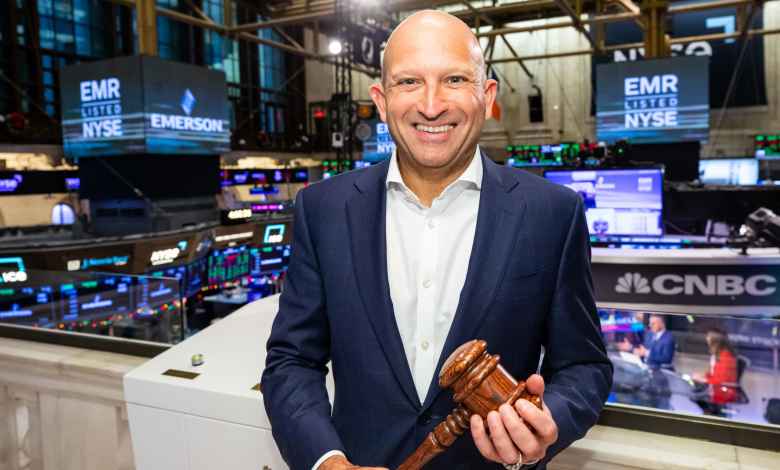After a protracted hostile takeover offer, club holding firm Emerson Electric (EMR) eventually reached an agreement to purchase National Instruments (NATI) on Wednesday, paying more than we anticipated. It was disappointing that Emerson paid almost $60 for each NATI share when the engineering and automation giant had said it would only pay in the low to mid $50s.
The actual price paid was $59.61 per share (because EMR already owned 2.3 million NATI shares, or 2% of the existing shares). Despite rising more than 10% after the deal news, to an all-time high, National Instruments was still trading a few dollars below the purchase price. Emerson stock declined in price.
On Wednesday’s conference call with investors discussing the deal, Emerson’s management said the deal will “add a high-growth automation aspect with exposure to key discrete end markets such as semiconductors, electronics, electric vehicles, and aerospace and defense.”
The National Instruments technology portfolio “stands poised to capitalize on the same secular trends as our core business today,” added the Emerson team. Emerson had long sought a deal with National Instruments and was in a strong position coming off a great 2022 amid last year’s rough market. EMR shares hit a 52-week high of nearly $100 each on Jan. 6.
But less than two weeks later, after the company made its hostile bid of $53 per NATI share, EMR fell off a cliff. It has suffered since then as Wall Street and investors like us debated (and still debate) the price of the deal. EMR 1Y Mountain Emerson Electric 1 Year Performance The club has made several EMR purchases since our inception in December.
While we don’t like hostile offers, it turns out that a deal or no deal would be fine with Emerson as long as they don’t overpay. Finally, on the company’s first-quarter earnings call in February, CEO Lal Karsanbhai was asked if Emerson would “hit the wall” and pay for the deal if National Instruments wouldn’t accept less than $60 a share.
We took Karsanbhai at his word when he replied, “I can tell you that very clearly, then we will not be the buyer of the asset.” Conclusion: This is the most staggering thing about the news. Management signaled to the market that they would be disciplined but still rose in price. While the deal is expected to be immediately profitable on an adjusted earnings per share (EPS) basis at $60 per share (which means EPS estimates will be raised slightly upon closing), it is quickly possible Saying one thing and doing the other takes your stock down. But to be clear, the problem isn’t that National Instruments is a bad company and this deal was doomed from the start.
There were multiple bidders for a reason, and reports suggest that Emerson and Fortive (FTV) had competitive bids for the purchase. What made Emerson’s offer more compelling was that it required no funding. The company has plenty of cash and will have $8 billion in after-tax earnings later this year once Climate Technologies’ majority sale to Blackstone (BX) closes. Now it’s time for management to show us we were wrong and that National Instruments was worth the higher price.
For now we are prepared to wait and see, but our patience is waning. (Jim Cramer’s Charitable Trust has long been an EMR. For a full list of stocks, click here.) As a CNBC Investing Club subscriber with Jim Cramer, you’ll receive a trade alert before Jim makes a trade. Jim waits 45 minutes after sending a trade alert before buying or selling any stock in his charitable foundation’s portfolio. When Jim spoke about a stock on CNBC television, he waits 72 hours after the trade alert is issued before executing the trade.
THE ABOVE INVESTMENT CLUB INFORMATION IS GOVERNED BY OUR TERMS AND CONDITIONS AND PRIVACY POLICY ALONG WITH OUR DISCLAIMER. NO OBLIGATION OR OBLIGATION SHALL BE OR CREATED BY YOUR RECEIVING OF ANY INFORMATION PROVIDED IN CONNECTION WITH THE INVESTING CLUB. NO SPECIFIC RESULT OR PROFIT IS GUARANTEED.
If big companies want to build new plants and install better equipment or generally expand — both of which are logical consequences of an economic recovery — “you can bet Emerson Electric is going to do a lot of business,” says Cramer. This company makes parts and tools for other companies and 75% of its activities are tied to infrastructure. So every time you hear the word “stimulus,” expect Emerson’s bottom line to benefit.
Club holding company Emerson Electric (EMR) finally announced an agreement to buy National Instruments (NATI) on Wednesday, ending a protracted hostile takeover bid but paying more than we expected.





